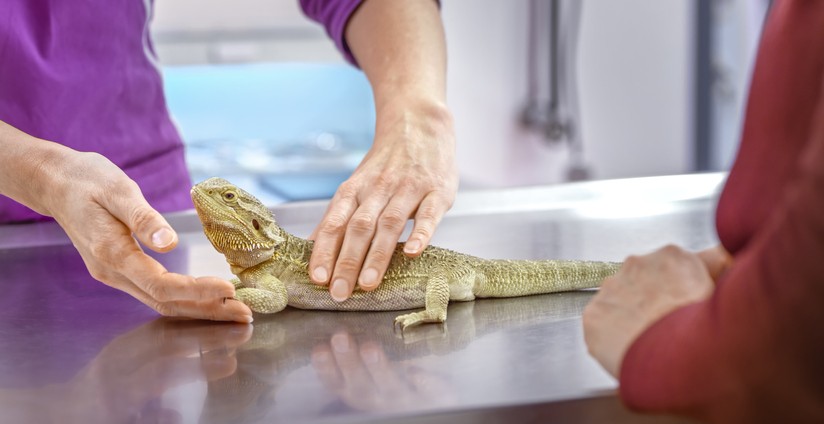
6 Reasons Why Reptiles Need to Visit the Vet
Do you have a pet reptile, or are you thinking of getting one? Did you know reptiles need to see the vet just like dogs and cats do? You might be asking, why would a reptile need to see the vet?
Whether you’re a first-time reptile parent or not, it’s important to brush up on everything you need to know about taking your reptile to the vet. Although some reptiles do not need to go to the vet very often, others may need to go frequently. Read through the list below to find out more about some of the most common reasons to take a reptile to the vet.
1. Establishing Visit
When you first adopt a reptile, you should go to the veterinarian for an establishing visit right away. This visit can allow your reptile vet to check for signs of health problems and let you know what your pet’s baseline health is like.
From there, the vet will know what to expect when you bring in your pet. This baseline will also make it easier for your vet to recognize problems in your reptile before they get out of hand. Establishing visits are crucial when it comes to monitoring your pet’s health over time.
2. Annual Checkups
Annual checkups are just as important for reptiles as they are for any other pets. Taking your reptile to the vet for an annual checkup is crucial in monitoring and maintaining their good health. Additionally, annual checkups make it easier for your vet to notice if anything starts to go wrong with your reptile before the situation worsens.
Although your reptile does not need vaccinations like dogs and cats do, they should still stay up to date on their vet visits. At your annual reptile vet visits, be sure to mention any concerns you may have to your pet’s vet.
3. Mite Check
Vet visits are a great way for your vet to check your reptile for signs of mites. Mites are unfortunately very common in reptiles, and although they do not typically get fleas, they often have issues with mite infestations. It can be tricky to spot mites on some reptiles, but vets typically perform skin scrapings to check for these parasites.
If your pet is diagnosed with mites, you’ll need to follow your vet’s guidance to help get rid of them. And if you have multiple reptiles in your home, it’s a good idea to have them all tested. If one has mites, they usually all will.
4. Respiratory Infection
Some reptiles, snakes in particular, are prone to respiratory infections. Respiratory infections may occur in any reptile whose habitat is not kept at an appropriate temperature level. By keeping your reptile’s habitat warm enough, but not too hot, you can significantly reduce the risk of respiratory infection in your pet.
If your pet is sneezing or has visible bubbles coming out of their nose or mouth, these are common symptoms of respiratory infection. You may not be able to hear sneezing or wheezing in small reptiles, but you should be able to see it if you watch carefully.
5. Breeding
If you plan to breed your reptiles at any time, it’s important to talk to your vet before breeding to ensure both potential parents are healthy and safe. Once the female becomes pregnant, she also needs to see a vet to make certain her pregnancy goes smoothly.
After laying her eggs, you may need to have the female checked once more for any signs of lasting trauma. Babies, when they hatch, will need to be examined by a vet as well to ensure they are healthy and strong enough to feasibly raise to adulthood.
6. Nutritional Needs
Some types of reptiles have complicated nutritional needs. You can stay up to date on your pet’s food and nutrition requirements by talking to your vet regularly about what your reptile needs.
If your reptile is underweight or is lacking in some type of nutrition, your vet will be able to let you know. From there, you can work with your vet to choose the ideal food plan for your pet moving forward.
Book an Appointment at Boston Veterinary Clinic
As you can see, there are plenty of reasons to consider taking your pet reptile to the vet. Although you may feel as though you don’t need to worry about vet visits when you have reptiles as pets, there are many ways a vet can help your pet stay healthier and happier throughout their life.
With the help of a trusted and qualified reptile and exotic animal veterinarian, you can provide all the health care your reptile needs and more. Your vet can also help you stay on top of concerns and questions you may have, and can ensure your reptile lives a happy life, too.
Use the online form to book an appointment with your Boston Veterinary Clinic reptile vet today! To learn more about caring for an exotic pet, listen to this Boston Veterinary Clinic podcast with Dr. Brian Bourquin and Dr. Jess Clay!